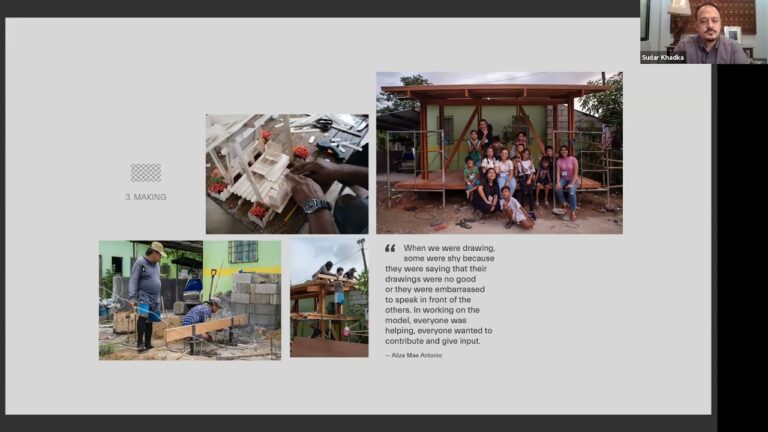
Conversations on Venice brings together architects, educators, curators and community organisers who are involved in the 17th Venice Architecture Biennale. Originally scheduled to open in May 2020, the Biennale was postponed by a year to 2021 as a result of Covid-19. The theme chosen by Hashim Sarkis, the curator of this edition of the Biennale, How Will We Live Together? was more prophetic than anyone originally realised, with all participants having an additional year to reflect on not just their contributions but the role of architecture in a time of crisis. This series of conversations invites a selection of national pavilions and Biennale contributors, most of whom have connections to the AA, to discuss common themes that span across their installations in Venice and beyond to address issues of care, mutuality, context, collaboration and above all togetherness.
Over the past 18 months, networks of mutual support have arisen across cities, countries, communities and borders in response to the global pandemic at an unprecedented scale. Yet this is not a new movement, with architectures of mutuality and care typically created as a way to collaboratively build resilience during times of adversity. In this conversation between the curators of the Philippines and British Pavilions, they will discuss similarities and differences in the architectures of mutual support that are presented in their respective installations and how to place value on collective care. From the community library and conflict-resolution space that was collectively designed and built in the Philippines before being transported to Venice and will soon return to the village as a synthesis of the Norwegian concept of Dugnad and the Filipino understanding of Bayanihan, to privatised public spaces like the British High Street, which go beyond just monetary exchange and where knowledge, skills and companionship become tools for bringing people together within these important civic spaces in every town and city across the UK; both pavilions discuss how to practise and enact care, participation and collective agency through architecture.
Alexander Eriksson Furunes and Sudarshan V. Khadka Jr. run a shared architectural practice rooted in principles of collaboration and mutual support. Khadka was an associate at Leandro V. Locsin partners and co-curated the Philippine Pavilion for the 2016 Venice Architecture Biennale. Furunes studied at the AA School of Architecture before getting his degree at NTNU, Norway. He is currently doing an artistic PhD, titled “Learning from Bayanihan/Dugnad” (2016-2021). Through projects in Brazil, China, India, Norway, Philippines and Vietnam, they explore critical construction as a means to express shared meanings through architecture. Khadka and Furunes are the curators and architects of the Philippine Pavilion for the 2021 Venice Architecture Biennale, titled “Structures of Mutual Support”
Madeleine Kessler is a co-curator of The Garden of Privatised Delights – the British Pavilion at the 17th International Venice Architecture Biennale – co-founder of Unscene Architecture and director of Madeleine Kessler Architecture. Trained as an architect and engineer, she has worked at studios in Basel, Beijing and London on projects including Battersea Arts Centre, Theatre Royal Drury Lane, and Oslo Airport City. She sits on the National Infrastructure Commission’s Design Group and teaches at the London School of Architecture and AA. She was named in the Architects’ Journal’s 40 under 40 and awarded the RIBA Rising Star Award.
Manijeh Verghese is a co-curator of The Garden of Privatised Delights – the British Pavilion at the 17th International Venice Architecture Biennale – and co-founder of Unscene Architecture. She is the Head of Public Engagement at the Architectural Association, where she is also a Unit Master of Diploma 12, a seminar leader for the AA Professional Practice for Fifth Year course, and a member of the Senior Management Team. She was on the curatorial panel for the 2021 London Festival of Architecture, and is currently an External Examiner at Cambridge University and a member of the Future City Curatorial Committee.
source